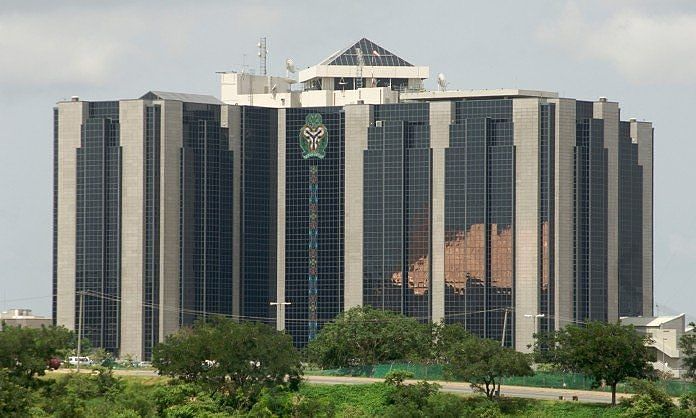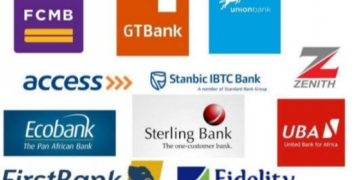The Central Bank of Nigeria (CBN) has urged more businesses to adopt the Central Bank Digital Currency (CBDC)-eNaira- for transactions and trade, as queues for cash withdrawals in banking halls and at Automated Teller Machines (ATMs) continue.
This is even as the Nigerian Economic Summit Group (NESG) has called on the CBN and the bankers committee to incentivise the use of digital channels for financial transactions to cushion the effect of the cash crunch facing Nigerians and their businesses.
Specifically, NESG said there should be incentives to promote the use of digital channels, such as a reduction of charges on transactions associated with digital channels.
However, the CBN said said it is in discussions with more telecommunication companies on the adoption of Unstructured Supplementary Service Data (USSD) which, it noted, has almost no downtime.
Presently, eNaira transactions are only enabled on MTN and 9mobile networks.
Speaking at a media parley in Lagos yesterday, CBN coordinator on eNaira, Ms. Rakiya Mohammed, who was represented by eNaira Project Giant Team, Otaru Abdulkadir said, the eNaira also came in to create an efficient and resilient environment for Nigeria’s electronic payments and transactions.
“Our aim of the eNaira includes reaching out to the financially excluded and the unbanked. We had to not only do something that works on the smartphone but something that works on any feature phone and with tech companies coming on board, such as BullNet, people with limited internet services can fund their eNaira wallet and have a safe wallet to be able to transact without having to go through the difficulties of having cash at hand.
“With the eNaira, we have a resilient infrastructure that can handle the requirements of the cashless policy and if we are able to drive the adoption of the eNaira efficiently, this will take away the pressure of the current cash crunch and issues with financial transactions in the country.
“We are still in the process of getting more telcos to buy into the USSD. We have a third-party service and they were able to get us MTN and 9Mobile. We are already speaking to Airtel and Glo as well and soon we will have them onboard with the eNaira,” she pointed out.
Stating that, people have been quite receptive to the eNaira, she added that “the figure we have at the moment is a successful growing figure. However, pending when we can have more tech companies, banks, and businesses, then we can have a full ecosystem or create a new eNaira ecosystem.”
To her, “hence, we need to create businesses where you can spend with the eNaira and this is what the CBN has been doing in that area to make the innovation to be successful.”
“We are also planning to onboard the traders at Balogun Market, thankfully, we have a representative here regardless of the type of phone they use. We have had a lot of tech firms, PoS operators coming forward and we like what firms such as BullNet is doing and we are using this opportunity to appeal to stakeholders in this transactional ecosystem which includes; merchants, traders, organisations to come onboard with the eNaira project just in case they need assistance.”
Meanwhile, the NESG said Nigeria’s digital infrastructure should be strengthened also. “There is an urgent need to expand the capacity of the digital financial system to accommodate the mass migration to digital channels. This is important to ensure a seamless transition to digital channels as alternatives to cash,” the group said in a report that was recently published.
According to NESG, difficulty experienced by people attempting to use digital channels for transactions suggests that payment platforms are not adequately mature to adjust quickly to a cashless economy.
The economic think-tank said as laudable as the aims of the CBN were in its decision to redesign the currency, evidences indicate that there has been a myriad of unintended challenges which have been significantly disruptive to economic activity and negatively affected the welfare of citizens.
The CBN had announced plans to redesign the country’s currency, specifically the higher denominations, on October 26th, 2022. The announcement came with a tight
deadline of January 31st, 2023, to phase out the old N200, N500 and N1,000 notes- which account for 95.6 per cent of the total value of the currency in circulation.
Implementation of the bank’s currency swap deadline and the corresponding scarcity of the new banknotes has created much hardship for Nigerians.
The NESG reviewed the process and said urgent redress is therefore required to stave off further adverse socio-economic effects and to restore confidence in the financial system. The NESG made the remarks in a new report tagged: Naira Redesign Policy: Caught in the Web.
In its recommendation, NESG adviced the authorities to adopt gradual phaseout of old notes due to the hardship households and businesses face, especially in the informal sector. It stated that the CBN needs to reconsider prolonging the legal tender usage of the old notes side-by-side with the new notes.
This, it said, is important to give the CBN the opportunity and time to devise effective ways of getting the new note to the unbanked populace and rural dwellers that constitute a large portion of the informal economy.
“Expedite the printing of new notes
The CBN should expedite the printing of new notes.
“Additionally, the apex bank should streamline distribution channels to ensure efficient delivery of the new notes to commercial banks and other financial institutions. This will help ensure an adequate supply of cash to meet the public’s demand and reduce long queues and other inconveniences,” NESG said in a review and merits of the currency swap.




